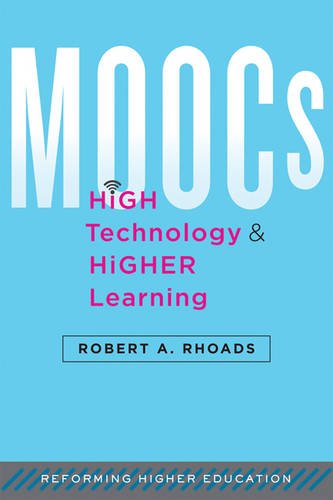

Most ebook files are in PDF format, so you can easily read them using various software such as Foxit Reader or directly on the Google Chrome browser.
Some ebook files are released by publishers in other formats such as .awz, .mobi, .epub, .fb2, etc. You may need to install specific software to read these formats on mobile/PC, such as Calibre.
Please read the tutorial at this link: https://ebookbell.com/faq
We offer FREE conversion to the popular formats you request; however, this may take some time. Therefore, right after payment, please email us, and we will try to provide the service as quickly as possible.
For some exceptional file formats or broken links (if any), please refrain from opening any disputes. Instead, email us first, and we will try to assist within a maximum of 6 hours.
EbookBell Team

4.8
24 reviewsIn MOOCs, High Technology, and Higher Learning, Robert A. Rhoads places the OpenCourseWare (OCW) movement into the larger context of a revolution in educational technology. In doing so, he seeks to bring greater balance to increasingly polarized discussions of massively open online courses (MOOCs) and show their ongoing relevance to reforming higher education and higher learning.
Rhoads offers a provocative analysis of a particular moment in history when cultural, political, and economic forces came together with evolving teaching and learning technologies to bring about the MOOC. He argues persuasively that the OCW and MOOC movements have had a significant impact on the digitalization of knowledge and that they have helped expand the ways students and teachers interact and develop ideas collaboratively. He also critically analyzes the extensive media coverage of MOOCs while examining empirical studies of MOOC content delivery, the organizational system supporting the OCW/MOOC movement, and faculty labor concerns.
Too often, technology advocates champion the MOOC movement as a solution to higher education’s challenges without recognizing the pedagogical, social, and economic costs. MOOCs, High Technology, and Higher Learning challenges many of the democratic claims made by MOOC advocates, pointing to vast inequities in the ways MOOCs are presented as an alternative to brick-and-mortar access for low-income populations. This book offers a clear-eyed perspective on the potential and peril of this new form of education.